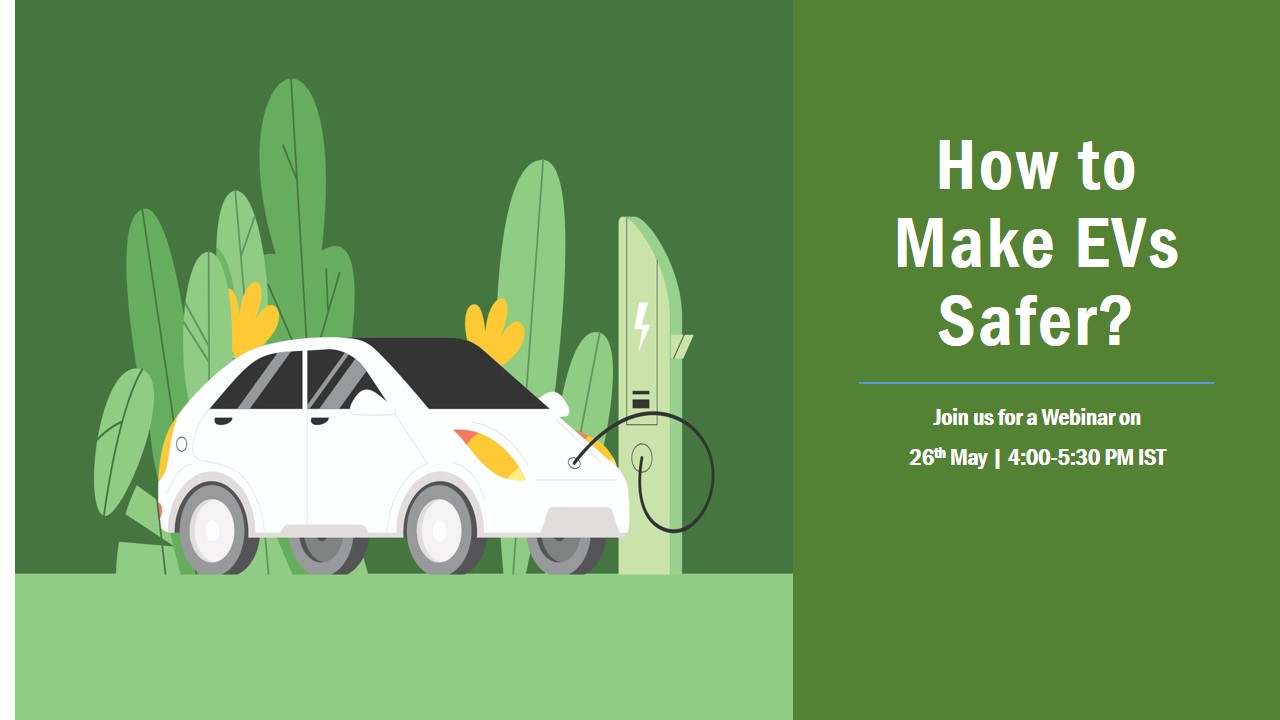The electric vehicles (EV) market is growing rapidly all over the world. In India, the EV market has gained significant momentum at the present time. Approximately 2% of total 2-wheeler sales 2021-22 were electric. A whopping 46% of 3-wheeler sold were also electric. As of today, the number of e-2-wheeler and e-3-wheeler on-road are around 4.2 lakh and 7.1 lakh respectively. The FAME-II policy is encouraging start-ups and investors to build the EV ecosystem in India while competing with the cheaper imported options. Currently, there are 380 EV startups and auto OEMs operating in India.
The natural air-cooled batteries are most common among e-2-wheelers today. Most safety-related incidents have also been observed in electric two-wheelers over the past year or so. This has triggered many recalls by auto OEMs and the overall credibility of EV safety in India has suffered a dent making it a critical issue.
Thus, the following safety aspect for e-2-wheelers in particular, and EVs in general need to be incorporated in the interest of both – the users and the EV industry.
1) Design of EVs (battery chemistry selection, sizing, cooling system, regeneration, controller calibration of safe operating thresholds, etc.)
2) Operations of EVs (awareness of best practices for a safe operation like charging rate, cooling period, ambient temperature, etc.)
3) Adequate EV regulatory framework (certification tests to capture real-world use cases and thus prevent on-road incidents)
It is important to deeply analyze all possible technical reasons and understand potential areas of improvement to avoid such incidents in near future. Thus, this webinar will focus on understanding;
- Top fire hazard risks in EVs
- Potential generic solutions to ensure the safety


